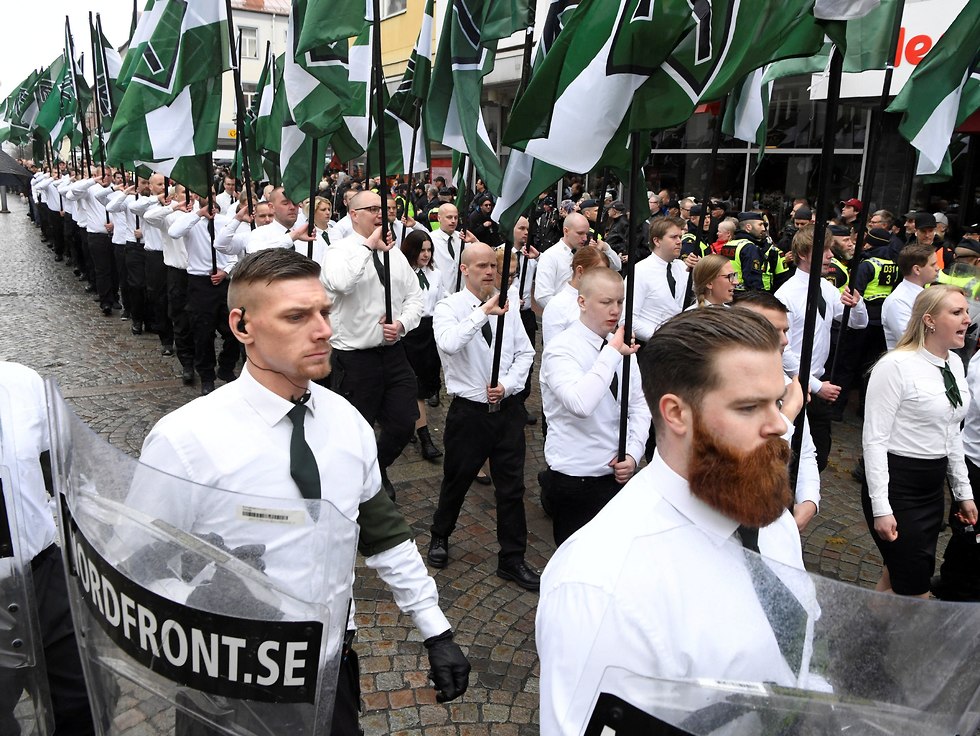
Members of the Neo-nazi Nordic Resistance Movement march through the town of Ludvika, Sweden
Photo: Reuters
Sweden wants as many young people as possible to visit Holocaust memorial sites to tackle anti-Semitism in the Nordic nation, where neo-Nazi activities have been intensifying in recent years.

The government said it would invest 15 million kronor ($1.7 million) on projects over three years to raise awareness about Nazi crimes against Jews, Roma communities and other groups.
"Nazism and racism are growing and spreading. We are therefore launching this investment so that more youth can be equipped with the knowledge to tackle the anti-democratic forces that are growing in Sweden," Culture Minister Alice Bah Kuhnke said in a statement.

Members of the Neo-nazi Nordic Resistance Movement march through the town of Ludvika, Sweden (Photo: Reuters)
The Swedish Committee Against Anti-Semitism will receive 12.8 million kronor to organize trips to Holocaust remembrance sites, and the Living History Forum, a public authority, is to offer educational tools and resources.
Sweden, which boasts a long tradition of welcoming refugees and persecuted groups, is experiencing a creeping rise in neo-Nazi activities in the public and on social media.
At the center of this is the Nordic Resistance Movement (NMR), described as the most violent neo-Nazi organization in Sweden by the anti-racism magazine Expo.
Openly promoting a racist and anti-Semitic doctrine, the group organized demonstrations on the sidelines of an annual book fair in Sweden's second-largest city of Gothenburg in September and held an authorized protest at a political forum on the island of Gotland last year.
Expo estimates that the organization's core consists of barely 80 members, but says it was more active last year than ever before.
A Swedish court in July last year sentenced three neo-Nazi activists for up to eight and a half years in prison over bomb attacks against refugee shelters that left one person seriously injured.
A 1997 study found that 66 percent of Swedish secondary school students were unsure whether the Holocaust actually happened.
The Living History Forum, which was established in 2003 to provide accurate information in schools about the Holocaust, recently launched a similar study, the results of which will be released later this year.
















